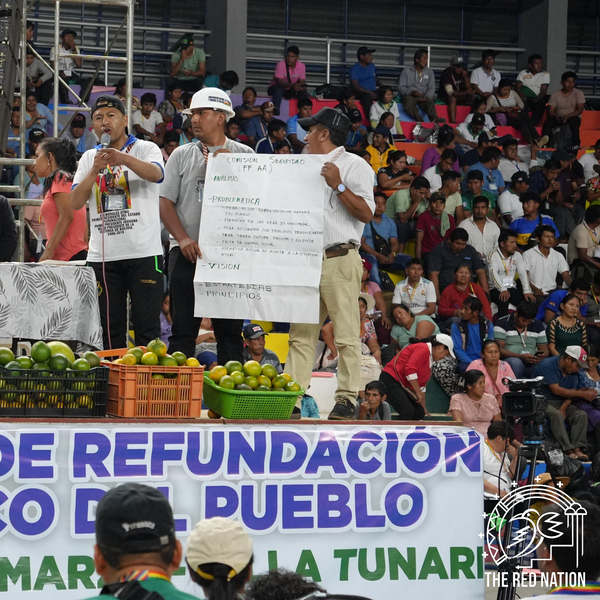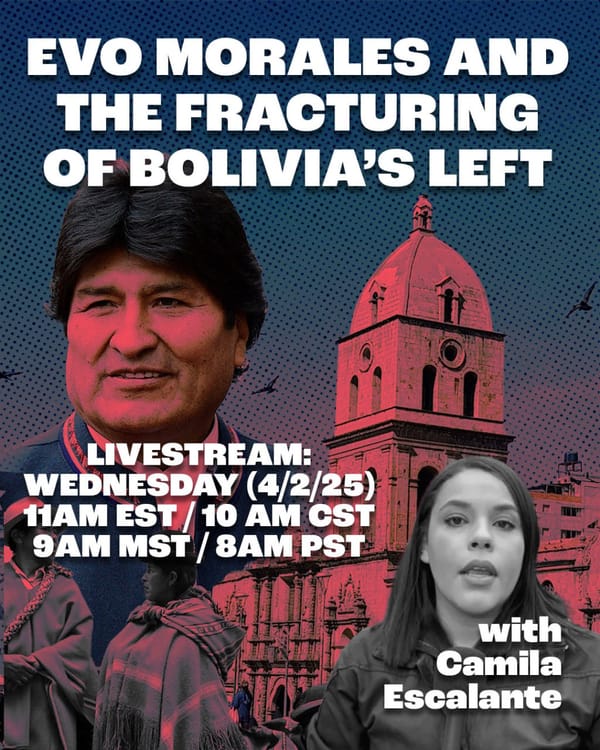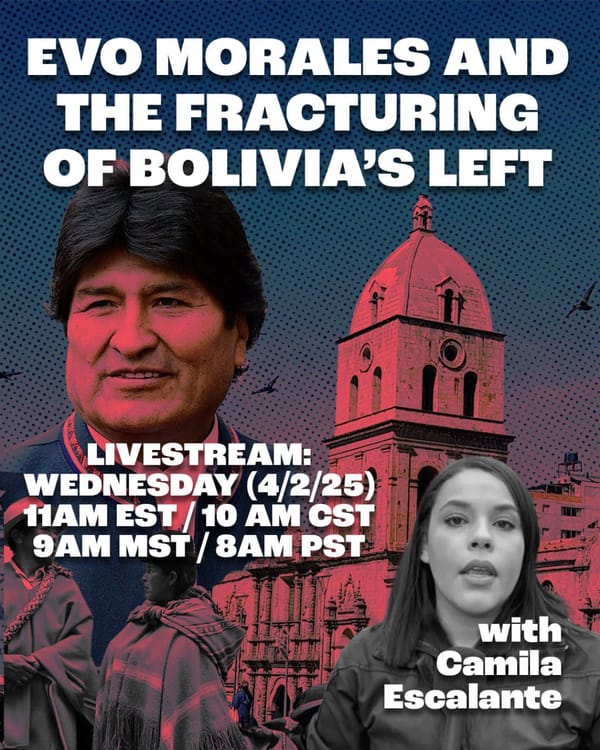What’s After Bernie Sanders?


The news about Bernie Sanders suspending his presidential campaign is a challenge (not a defeat) to build a broad, anti-colonial left outside ruling class political parties. Amid the global COVID-19 pandemic, which has resulted in mass layoffs, rent strikes, and working-class mobilizations, his withdrawal couldn’t have come at a worse time for his supporters. But the politics of cynicism and reaction — which fester as uncertainty grows — are incredibly dangerous in a time when the future of the planet hangs in the balance.
We might say, we told you so to the Sanders campaign: A corporate party would never allow a mild reform candidate to run as the Democratic nominee for president of the most advanced capitalist nation. We wouldn’t be wrong for saying so. But we’re not applauding the loss of life-saving reforms, such as universal healthcare, housing rights, and worker protections. To do so is nihilism.
We must make a sincere effort to understand Sanders’ mass appeal and ultimate loss, and why it’s necessary to build the anti-colonial left that can fight and win.
In 2016, Democratic Party bosses and mainstream media actively undermined Sanders’ candidacy, and they did so again in 2020. In both races, he demonstrated widespread support from broad sectors of the working class — grassroots social movements, young people, feminists of color, Indigenous people, Chicanxs, Black people, and migrant communities.
By all appearances, the movements in Sanders’ camp didn’t reflect the ruling class interests of Democratic party elites. That’s what made him “an insurgent candidate” and a threat to the status quo.
In foreign policy, Sanders was equally dangerous as his Democratic and Republican colleagues. While sympathetic to certain anti-imperialist positions, such as ending sanctions against Iran during the COVID-19 pandemic, he has supported US sanctions and military intervention. It begs a larger question: Can there be a serious anti-imperialist presidential campaign in the United States?
We don’t live in a world of hypotheticals. Reality is concrete, and so too are the conditions to change it. Imperialism and settler colonialism aren’t headaches, that if ignored long enough they go away.
Ignoring the incompatibility of working-class movements and real decolonization with ruling class parties is a grave mistake. The current political order cannot reconcile colonizer and colonized, exploiter and exploited, labor and capital. Only revolutions can do that. In the name of profits, the settler state wages class war to suppress Indigenous, colonized, and working class movements.
The point, however, is not to be right about this situation — it’s to win. It’s knowing that a better world is possible. To build a real alternative to a corporate party structure begins with building and supporting actual left movements for decolonization and liberation.
This is not a view from nowhere but emerges from the very earth itself and the humble people of the planet. We’re not confused about the global division of humanity between those who live with war, suffering, and poverty and those who live in relative comfort insulated from the nightmare reality their nation inflicts upon the rest of the planet.
As Indigenous people in North America, we live in the first world but are not entirely of it. It has consumed us, attempting to destroy us. When invaders brought their forms of democracy to our shores, we were the majority. After centuries of genocide, we are a minority of minorities in their majority-rule democracy but we still are the caretakers of this land. We cannot simply turn away from the settler state or withdraw from, precisely because it has organized itself around our erasure to take our lands and resources. We confront it all turns, including through electoral politics.
Our strategy must take into consideration two realities that seem contradictory: 1) many people participate in politics by campaigning and voting in elections; and 2) socialism and decolonization cannot be achieved solely at the ballot box but only through collective struggle from the bottom-up. Many in the Sanders camp understood this as much as we did.
Our movement, however, didn’t begin nor will it end with a candidate. We are disappointed, but not surprised, with how election cycles suck up all the air and take away critical energy from revolutionary movements.
Recent Indigenous-led uprisings during US presidential campaigns show how the ebbs and flows of elections sometimes work against the aims of decolonization movements.
For example, while the Standing Rock camps first went up in April 2016, it was only after Democratic bosses stole Sanders’ nomination in July that his disillusioned movement started paying attention to what became the Indigenous resistance movement of our time. Imagine if there was a fraction of awareness as construction on the Dakota Access Pipeline began in April as there was later that year.
And this year, the brave Wet’suwet’en land defenders shutdown large parts of the Canadian economy with widespread rail blockades and mass Indigenous-led uprisings, after police violently evicted Wet’suwet’en matriarchs and their supporters from the land to build a natural gas pipeline. But our comrades and relatives in the north didn’t capture nearly as much attention and support as the blond-haired Swedish teenager did just months earlier, when she made near-identical arguments about climate justice as her Indigenous counterparts. In the United States, the focus was on the Democratic primaries.
After November 8, 2016, when all hope was lost for an opposition to the growing reactionary movement embodied in Donald Trump’s presidency, the camps at Standing Rock surged to the tens of thousands. As this year enters into a nightmarish realm of Democrats and Republicans patting themselves on the back for injecting formaldehyde into the dead corpse of capitalism with corporate bailouts, bodies of our relatives keep piling up and more lose what little livelihoods they once had.
The presumed Democratic presidential candidate Joe Biden promises a return to Obama-era politics, a return to “normal” which means more of the same. He faces off against Donald Trump in a contest that can only be described as a choice between neoliberal restoration or neofascist reaction. This is no choice at all.
The current path is one of ruin. We understand that the only choice on a planet so thoroughly ravaged by capitalism and climate changes is decolonization or extinction.
The ebbs and flows of elections create mass organizations that rally around candidates. But this organization crumbles and the movements wane after the cycle is over leaving many disillusioned and alone. This moment of physical distancing and social isolation is incredibly challenging. That’s why we think it is more important than ever to join a revolutionary decolonization movement, like The Red Nation.
What’s after Bernie Sanders? What was before his campaign and will continue well beyond it — centuries of Indigenous resistance.
We need comrades in this struggle. Join us.
For more information on how to join The Red Nation, contact us:
Facebook: https://www.facebook.com/therednation/
Twitter: @The_Red_Nation
Instagram: @therednationmovement
Email: editortherednation@gmail.com




